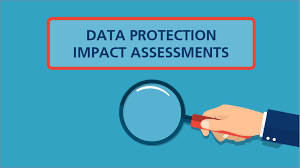Data Privacy Impact Assessment Training Course
Data Privacy Impact Assessment (DPIA) Training Course is designed to equip professionals with the skills, tools, and frameworks necessary to identify, assess, and mitigate privacy risks associated with the processing of personal data.

Course Overview
Data Privacy Impact Assessment Training Course
Introduction
In today’s rapidly evolving digital world, data privacy has become a cornerstone of organizational compliance and ethical responsibility. Data Privacy Impact Assessment (DPIA) Training Course is designed to equip professionals with the skills, tools, and frameworks necessary to identify, assess, and mitigate privacy risks associated with the processing of personal data. With rising regulatory mandates such as the GDPR, CCPA, and PIPEDA, conducting thorough DPIAs is no longer optional—it is essential to ensure both legal compliance and consumer trust. This course empowers participants to navigate complex privacy landscapes, anticipate threats, and develop strategic data governance protocols.
This comprehensive training provides hands-on experience in executing DPIAs, utilizing international privacy frameworks, and embedding privacy-by-design principles in data-driven projects. Whether you're a data protection officer, compliance lead, or IT security expert, this course enables you to perform DPIAs that align with global standards and organizational goals. Emphasizing real-world case studies, regulatory updates, and practical checklists, the curriculum builds confidence in handling high-risk data processing operations across industries.
Course Objectives
- Understand the legal and regulatory foundations of Data Privacy Impact Assessments (DPIAs).
- Identify high-risk personal data processing activities.
- Conduct risk assessments using GDPR-compliant DPIA templates.
- Integrate privacy-by-design and privacy-by-default into data projects.
- Use automated DPIA tools and privacy risk-scoring software.
- Analyze stakeholder roles and responsibilities in data privacy governance.
- Apply ISO/IEC 27701 and NIST privacy frameworks to DPIAs.
- Assess third-party risks and vendor compliance in data processing.
- Mitigate privacy risks through technical and organizational controls.
- Evaluate the effectiveness of data protection impact assessments.
- Design DPIA documentation for audit readiness and transparency.
- Align DPIA strategies with cross-border data transfer requirements.
- Monitor and update DPIAs to reflect changes in data processing.
Target Audience
- Data Protection Officers (DPOs)
- IT Security Managers
- Compliance and Risk Officers
- Legal and Regulatory Affairs Professionals
- Data Governance Analysts
- Privacy Consultants
- Product and Project Managers
- Health, Finance, and Education Data Controllers
Course Duration: 5 days
Course Modules
Module 1: Introduction to DPIA and Regulatory Background
- Definition and purpose of DPIAs.
- Legal obligations under GDPR, CCPA, etc.
- Data processing thresholds for requiring DPIAs.
- Overview of global data privacy laws.
- Key principles of privacy-by-design.
- Case Study: GDPR DPIA enforcement example in the healthcare industry.
Module 2: Identifying High-Risk Processing Activities
- Criteria for high-risk processing.
- Profiling, surveillance, and biometrics use cases.
- Role of data categories and data subjects.
- Pre-assessment screening tools.
- Prior consultation with data protection authorities.
- Case Study: Social media profiling and DPIA requirement.
Module 3: DPIA Planning and Stakeholder Engagement
- Assembling a DPIA team.
- Internal and external stakeholder roles.
- Mapping data flows and life cycles.
- Assessing organizational readiness.
- Defining project scope and timelines.
- Case Study: Multinational corporation’s DPIA rollout strategy.
Module 4: Risk Identification and Assessment Techniques
- Data flow diagrams and asset inventories.
- Threat modeling and risk matrices.
- Evaluating likelihood and severity of harm.
- Assessing risks to data subjects’ rights.
- Privacy impact scoring methodologies.
- Case Study: Financial institution risk modeling DPIA.
Module 5: Risk Mitigation and Remediation Measures
- Selecting appropriate technical safeguards.
- Organizational controls and policy adjustments.
- Data minimization and retention strategies.
- Embedding anonymization and encryption.
- Handling residual risk and justification.
- Case Study: University’s DPIA on student surveillance tools.
Module 6: DPIA Documentation and Reporting
- Documenting DPIA outcomes and actions.
- Reporting templates and audit trails.
- Communicating with supervisory authorities.
- DPIA decision logs and sign-off processes.
- Maintaining DPIA documentation lifecycle.
- Case Study: DPIA audit readiness in a cloud service firm.
Module 7: DPIA Tools, Automation, and Integration
- Overview of DPIA automation software.
- API integrations with risk management tools.
- Benefits and limitations of automated assessments.
- Choosing the right DPIA platform.
- Embedding DPIA into DevSecOps.
- Case Study: Automated DPIA in a SaaS product deployment.
Module 8: Continuous Monitoring and Updates
- Establishing DPIA update schedules.
- Triggers for reassessment (tech or law changes).
- Continuous improvement with KPIs.
- Training and awareness for DPIA sustainability.
- Handling DPIA audits and regulator reviews.
- Case Study: Retail DPIA program evolution post-CCPA updates.
Training Methodology
- Interactive lectures and regulatory walkthroughs
- Hands-on workshops with DPIA templates and tools
- Group work and peer-to-peer knowledge exchange
- Expert-led case study analysis and real-world simulations
- Quizzes and post-module assessments
- Access to DPIA frameworks, checklist library, and online resources
Register as a group from 3 participants for a Discount
Send us an email: [email protected] or call +254724527104
Certification
Upon successful completion of this training, participants will be issued with a globally- recognized certificate.
Tailor-Made Course
We also offer tailor-made courses based on your needs.
Key Notes
a. The participant must be conversant with English.
b. Upon completion of training the participant will be issued with an Authorized Training Certificate
c. Course duration is flexible and the contents can be modified to fit any number of days.
d. The course fee includes facilitation training materials, 2 coffee breaks, buffet lunch and A Certificate upon successful completion of Training.
e. One-year post-training support Consultation and Coaching provided after the course.
f. Payment should be done at least a week before commence of the training, to DATASTAT CONSULTANCY LTD account, as indicated in the invoice so as to enable us prepare better for you.